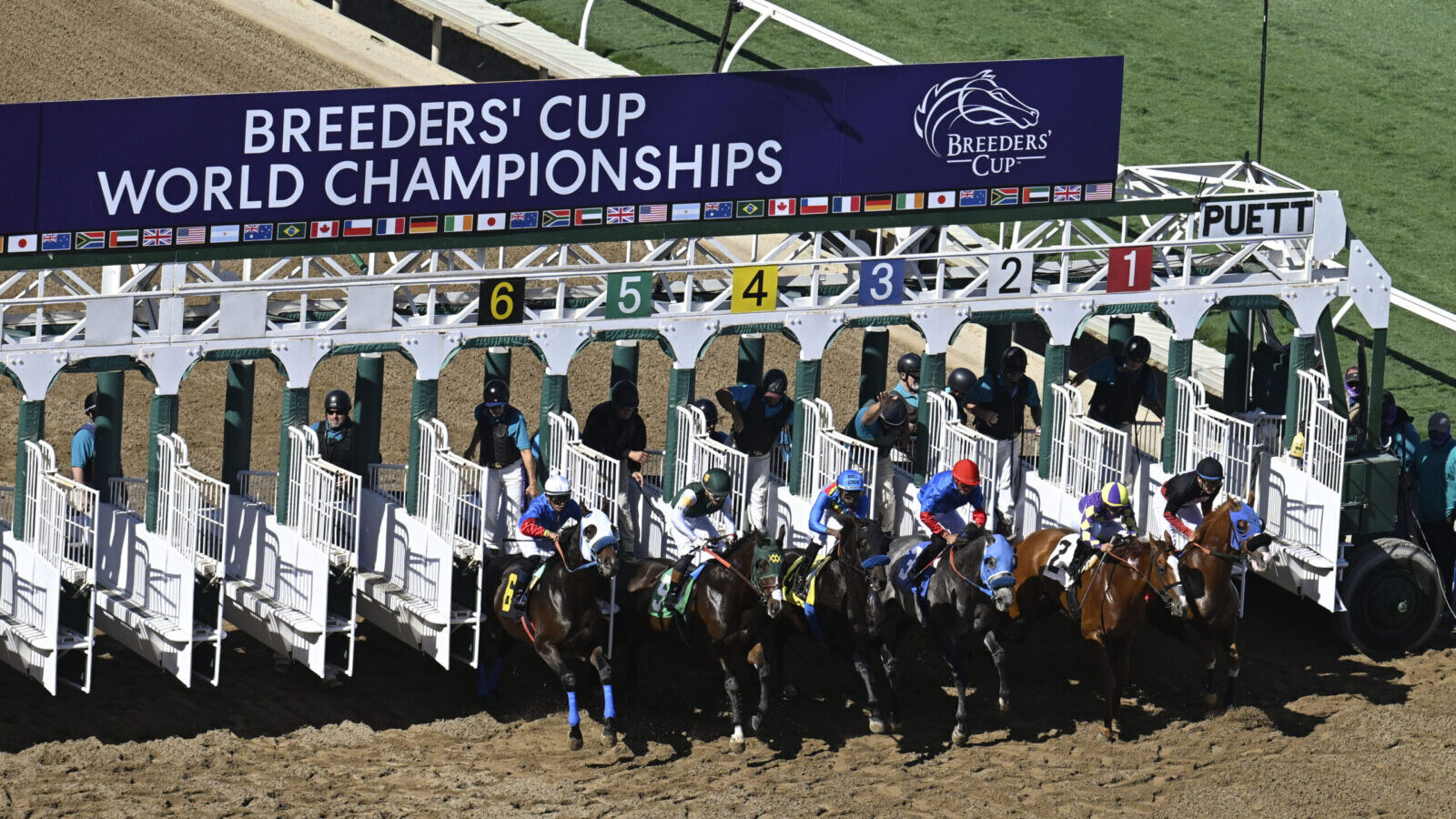Record Number Of Japanese Horses In Breeders’ Cup, But Japanese Bettors Can’t Wager On Some Of Them
As Japanese horse racing grows, the country’s regulations on betting are among the most insular in the world
3 min

In terms of land mass, the island country of Japan is about the size of California. When it comes to people, it’s a lot denser, but is still home to less than half the United States’ population.
Major League Baseball, of course, is based in the U.S. — with a one-team wink at Canada. So how was it that a recent playoff game between two teams in Southern California attracted nearly 13 million television viewers while only 7.5 million Americans watched the game?
There are two factors, really. That game, played between the Los Angeles Dodgers and San Diego Padres, pitted two Japanese starting pitchers, Yu Darvish and Yoshinobu Yamamoto, against each other, and featured the sport’s best player, Shohei Ohtani, who also happens to be Japanese.
But the main reason is that Japanese sports fans are absolutely bonkers for baseball — a description that also applies, albeit to a lesser extent, to horse racing.
There was a time, a time before cable, when baseball and horse racing were arguably the two most popular spectator sports in the U.S. Baseball, while diminished, still holds its own. As for horse racing, while its online wagering handle is nothing to sneeze at, gone are the days when most American tracks were packed.
Granted, plenty of live attendees still show up for first-tier racing events, like this weekend’s Breeders’ Cup, held north of San Diego at Del Mar Thoroughbred Club — where the turf meets the surf. At this two-day (Friday and Saturday) event, a record 19 horses with Japanese connections will compete in 11 different championship races.
And while Americans and online punters in various other countries will have the opportunity to bet on all of these races, Japanese bettors will only be able to wager on four (all on Saturday). Moreover, Japanese bettors are restricted to wagering in a parimutuel pool that will not be commingled with the so-called “world pool” that other countries participate in.
All of this points to an intriguing dynamic: As Japanese horse racing looms larger than ever on the international stage, the country’s regulations and views on betting are among the most insular in the world. And given the sport’s thriving — and lucrative — stature in Japan, the world can only wish it would loosen up a little.
Silence is golden
The story of modern Japanese horse racing begins with an American colt, Sunday Silence, the 1989 Kentucky Derby, Preakness Stakes, and Breeders’ Cup Classic champ whose second-place finish in the Belmont Stakes caused him to come up just short of the sport’s hyper-elusive Grand Slam.
After his career on the track was over, Sunday Silence was retired to stud in Japan, where he sired wildly successful progeny like Deep Impact and became the most important stallion in the nation’s history.
“It’s massive,” David Morgan, chief journalist at Idol Horse, said of Sunday Silence’s impact on Japanese racing. “Sunday Silence is to Japan what Northern Dancer was to Europe. Without him, I don’t know quite where they’d be. His sons did incredibly well, Deep Impact being the most famous. He’s a super sire himself. Deep Impact is Japan’s Galileo — I think his impact was probably greater than Galileo’s given where they were coming from.”
“Sunday Silence’s legacy, represented notably by Deep Impact, has produced offspring with a rare combination of speed and stamina, many of which have succeeded not only domestically but also on the world stage,” said Ryo Saito, a spokesman for the New York office of the Japan Racing Association (JRA). “Moreover, these successful progeny have gone on to sire their own exceptional offspring, establishing bloodlines that form the foundation of modern Japanese horse racing.”
Couple Sunday Silence’s impact with scores of savvy yearling and broodmare purchases at U.S. sales by Japanese barns, and the country has become a force to be reckoned with, boasting no fewer than three thoroughbreds — Darma Sotogake, Forever Young, and Ushba Tesoro — in a 14-horse Classic field that’s rounded out by 10 American entries and a lone U.K. interloper.
And yet, as Morgan puts it, “There’s still an element of reservation and inward-looking in Japan.”
‘We’re all right, thanks’
Japanese horse racing is, by and large, controlled by the country’s Ministry of Agriculture, Forestry, and Fisheries. The JRA’s Saito said provisions have been made for Japanese bettors to wager on 32 international races in 2024, including the aforementioned Breeders’ Cup quartet.
Meanwhile, the concept of the world pool is to harness the power of the world’s biggest races into a single parimutuel pot, with Japan by far the biggest remaining holdout.
“[Japan’s] pool is so big that they probably take the view: We’re all right, thanks,” said Morgan.
“A portion of the JRA’s wagering revenue is paid to the national treasury, making it essential to secure stable income through its own pool,” explained Saito. “By maintaining a domestic pool, the JRA can offer consistent odds to its customers. Additionally, Japanese horse racing operates under strict regulations, and joining the world pool would require significant legal changes, which presents a considerable barrier.”
Some of the world’s biggest wagering syndicates would love to be able to bet into Japan’s separate parimutuel pool, as it almost undoubtedly offer juicier odds on non-Japanese contenders in a major international race than commingled pools would. But Morgan said it’s extremely difficult to open an online betting account in Japan, as “the Japanese are very careful in who they let in.”
A truly intrepid brick-and-mortar bettor could always fly to Japan to bet into its pool in person, but according to Saito, “We have not specifically observed any such instances.”






